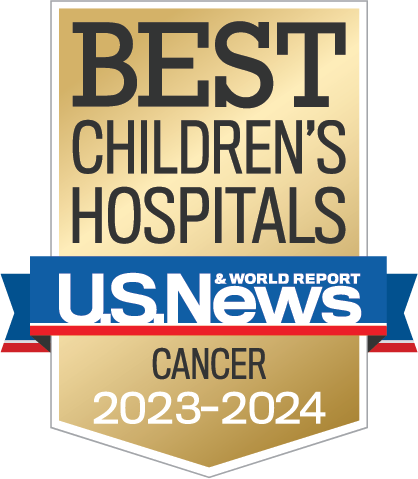- Doctors & Departments
-
Conditions & Advice
- Overview
- Conditions and Symptoms
- Symptom Checker
- Parent Resources
- The Connection Journey
- Calm A Crying Baby
- Sports Articles
- Dosage Tables
- Baby Guide
-
Your Visit
- Overview
- Prepare for Your Visit
- Your Overnight Stay
- Send a Cheer Card
- Family and Patient Resources
- Patient Cost Estimate
- Insurance and Financial Resources
- Online Bill Pay
- Medical Records
- Policies and Procedures
- We Ask Because We Care
Click to find the locations nearest youFind locations by region
See all locations -
Community
- Overview
- Addressing the Youth Mental Health Crisis
- Calendar of Events
- Child Health Advocacy
- Community Health
- Community Partners
- Corporate Relations
- Global Health
- Patient Advocacy
- Patient Stories
- Pediatric Affiliations
- Support Children’s Colorado
- Specialty Outreach Clinics
Your Support Matters
Upcoming Events
Colorado Hospitals Substance Exposed Newborn Quality Improvement Collaborative CHoSEN Conference (Hybrid)
Monday, April 29, 2024The CHoSEN Collaborative is an effort to increase consistency in...
-
Research & Innovation
- Overview
- Pediatric Clinical Trials
- Q: Pediatric Health Advances
- Discoveries and Milestones
- Training and Internships
- Academic Affiliation
- Investigator Resources
- Funding Opportunities
- Center For Innovation
- Support Our Research
- Research Areas

It starts with a Q:
For the latest cutting-edge research, innovative collaborations and remarkable discoveries in child health, read stories from across all our areas of study in Q: Advances and Answers in Pediatric Health.


Cancer and Blood Disorder Clinical Trials
Our top-ranked hematology, oncology, blood and marrow transplant and cellular therapy programs are national leaders in new and advanced treatments for pediatric cancers and blood diseases.

When a child faces a cancer or blood disorder diagnosis, they need to have access to the most current and effective treatment options possible. In the realm of cancer treatment, that means having access to a wide array of clinical trials.
Research shows that children who participate in clinical trials have better survival rates than those who do not. That’s why our team offers access to more than 300 clinical trials and maintains relationships with top cancer experts and organizations throughout the world.
Here, we’re not just offering the latest treatments, we are at the forefront to the next generation of cures.
What is an oncology clinical trial?
A clinical trial is a process that tests new methods to treat and prevent disease.
The goal of cancer and blood disorder trials is to find new methods to treat or learn about a condition. The new methods may include:
- Looking at a patient’s tumors to learn more about the disease
- Providing new or different approaches to surgery or radiation
- Applying new methods for modifying genes or a person’s own cells through cellular therapy
- Offering new drugs or combinations of drugs
- Improving outcomes for the tumor or blood disorder
At Children’s Colorado, we always offer patients the best and most current treatment available, which often includes the opportunity to participate in a clinical trial. In some cases, these patients may be the first to benefit from such treatment.
What are the different phases of clinical trials for cancer?
There are different phases of testing and evaluating a new or different therapy. Phase one and phase two trials are known as "early phase trials." Phase three and four trials are usually considered “later phase trials.”
Phase one trial
A phase one trial is the first use of a new method for treating a disease. In this phase, the doctors want to find out:
- The ideal or maximum tolerated dose of the new treatment – how much a patient needs to take to have an effect without too many side effects
- Side effects of the new treatment
- In which patients the new treatment is most promising
The study doctor and team will closely follow the patient's care to evaluate side effects and make sure the new treatment is safe.
A phase one trial has a small number of patients who participate. Doctors may use extra tests or extra blood draws to look at how the new treatment works in the body, how the body responds to the treatment and which patients may benefit most.
Phase two trial
A phase two trial will evaluate the new treatment for a type of cancer or disease that has a specific gene abnormality or biologic marker in common.
- A small number of patients take part in this type of trial.
- The study doctors closely follow the patient's care to assess possible side effects and make sure the new treatment is safe.
Phase three trial
A phase three trial compares the new treatment to the current standard of care treatment for a certain type of cancer. It is usually considered "later phase."
The number of patients who take part in a phase three trial is much larger than phase one and two trials. In these trials, the new treatment has already shown some promise during the early phase trials, and the doctors want to see if it's better than the current standard treatment.
Sometimes these studies test whether less therapy is better or if a completely different therapy is better. For most phase three trials, researchers use randomization (like flipping a coin) to help decide which treatment each patient will receive.
Phase four trial
Phase four trials study the side effects caused by a new treatment over time after it has been approved and is on the market. These trials study side effects and effectiveness of the treatment over a long period of time and can include thousands of patients.
Clinical trial contact information
Our clinical trial options frequently vary over time. For information about trials that might be available, please visit clinicaltrials.gov, https://researchstudies.cuanschutz.edu/ or email us at ETP@childrenscolorado.org or call 720-777-5877



 720-777-0123
720-777-0123




